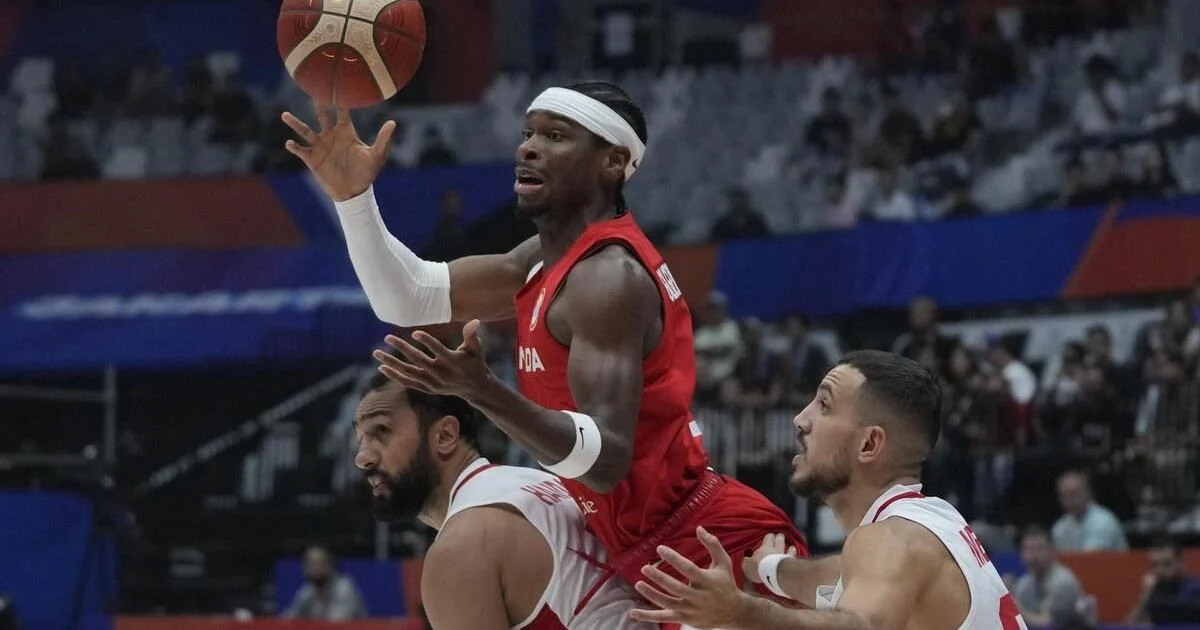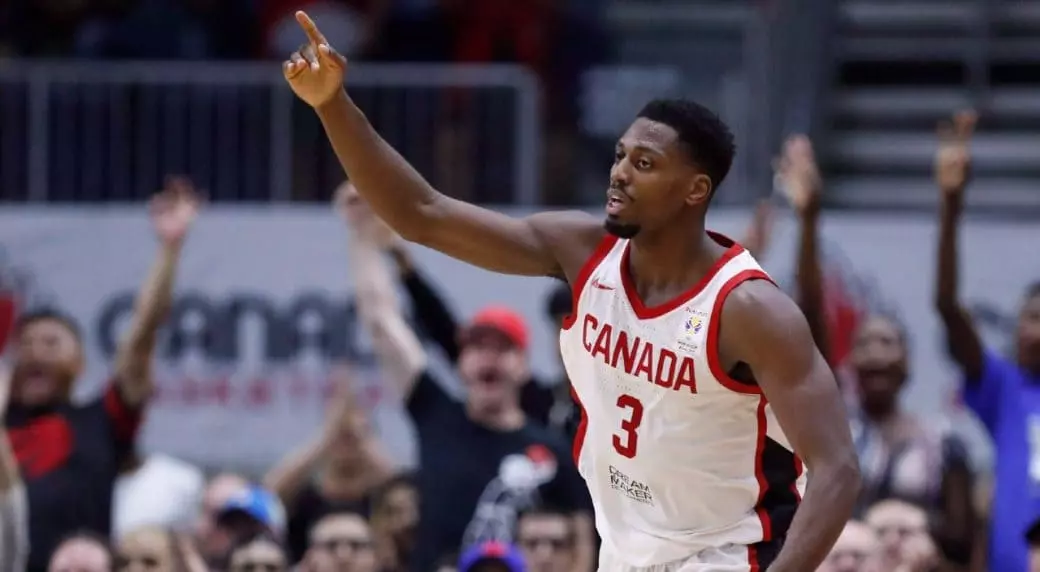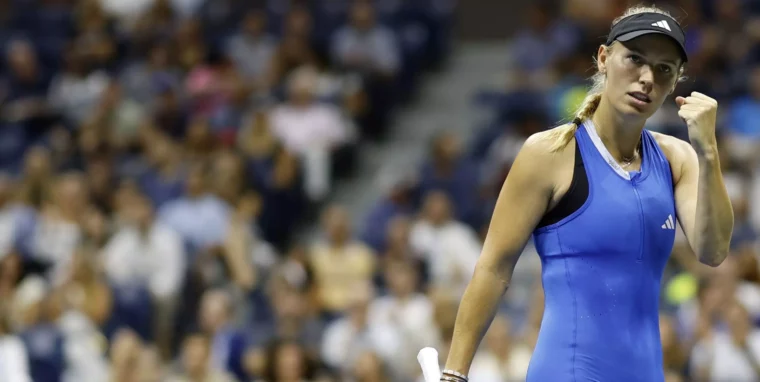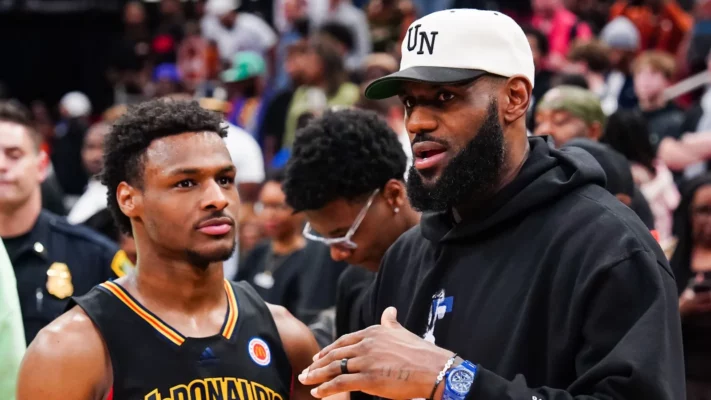
In a gripping showdown that unfolded during the FIBA World Cup, the Canadian Men’s team overcame a sluggish start, ultimately achieving their third consecutive victory against Latvia. Both Canada and Latvia had previously secured their places in the second round with 2-1 records. Although there was no elimination pressure in this game, teams carried their records and point differentials into the next round, making victory essential.
A Battle of Styles
Canada and Latvia progressed from Group H and are set to face the top two teams from Group G in the second round. As of Tuesday, Spain had already secured their spot in the second round, while a match between Cote D’Ivoire and Brazil would determine Canada’s other opponent.
Now, let’s delve into Canada’s performance against Latvia. It was an intriguing matchup from the start, with Latvia known for its long-range shooting prowess. They could hit three-pointers from anywhere on the court, boasted swift ball movement, and presented themselves as a dark horse team. On the other hand, Canada had encountered struggles with three-point shooting and relied on penetrating the paint and attacking the rim. It was crucial for Canada to take this game seriously to succeed.
In the first half, Canada displayed all its vulnerabilities against Latvia. At one point, Latvia held a 12-point lead over Canada, while Canada’s three-point shooting was at a mere 20%. Dillon Brooks accumulated three early fouls, which was concerning given FIBA’s rule of five fouls compared to the NBA’s six. After trailing 23-13 at the end of the first quarter, Canada began to mount a comeback in the second quarter. Shai Gilgeous-Alexander and RJ Barrett initiated a 5-0 run that paved the way for Canada’s dominance.
Nickeil Alexander-Walker also contributed to Canada’s resurgence in the first half with a couple of clutch three-pointers. The team finished the first half with a 20-7 run, securing a one-point lead at halftime, 43-42.
During halftime, Canada’s three-point shooting stood at 30% (6-20), and their overall field goal percentage was 38% (14-37). Concerns arose among fans that Canada’s shooting struggles might persist into the second half, but that proved not to be the case. Canada showcased its strength in the third quarter, a phase where they have consistently excelled in FIBA games. They finished the third quarter with a ten-point lead over Latvia, 67-57.

Remarkably, Latvia struggled to make a single three-pointer in this quarter, allowing Canada to capitalize on their misfortunes.
The fourth quarter saw Canada accumulating points comfortably. Despite Dillon Brooks spending a significant portion of the game on the bench with four fouls, Canada continued to demonstrate physicality and aggression near the basket. Phil Scrubb, a long-time Canadian player, contributed with a couple of three-pointers, bolstering Canada’s score. In FIBA competitions, sportsmanship doesn’t involve refraining from scoring in a blowout game; every point counts, and Canada’s impressive point differential from the first round could prove crucial in the subsequent rounds.
Canada concluded the game with a resounding 101-75 victory over Latvia, not only dominating the match but also Group H. This marked the first time in program history that the Canadian Men secured a 3-0 record in the first round, with an impressive point differential of +111, the highest in the entire tournament. These achievements carry into the second round, where Canada will face Spain and one of Brazil or Cote D’Ivoire.
Shai Gilgeous-Alexander led all Canadians with 27 points, six rebounds, and six assists, while RJ Barrett contributed 22 points, five rebounds, and one assist. Team Captain Kelly Olynyk scored 15 points, along with six rebounds and four assists. Nickeil Alexander-Walker added 14 points, five rebounds, and two assists, showcasing his exceptional three-point shooting skills.
In the upcoming rounds, two teams from this group of four will advance to the quarterfinals. While Canada won’t face Latvia again, defeating Spain, potentially the other 3-0 team, will be crucial for their progress. Canada had recently defeated Spain, making victory against both teams a possibility, securing their spot in the quarterfinals. There are various paths to Canada’s success in the FIBA tournament as they head into the weekend.
While the excitement from this remarkable first-round performance is substantial, the journey in the FIBA tournament and Canada’s pursuit of Olympic qualification are far from over. The race to the Olympics continues as two out of the seven teams from the Americas at the FIBA World Cup will earn spots for the Paris 2024 Olympics. Among these teams, Team USA remains the top contender, but the Dominican Republic and Karl Anthony Towns have also excelled, boasting 3-0 records in their group play. Canadian fans are rooting for Cote D’Ivoire in the upcoming game, as Brazil’s elimination would clear one more obstacle on Canada’s path to Olympic qualification.
Canada now eagerly awaits the results of tomorrow’s games to determine their opponents in the second round, with matches scheduled for Friday and Sunday. As the FIBA World Cup journey unfolds, all eyes are on Canada’s next steps.
Key Moments
- Canada overcomes early struggles to secure a convincing victory against Latvia.
- Dominant third-quarter performance propels Canada to a comfortable lead.
- Shai Gilgeous-Alexander and RJ Barrett shine as top performers for Team Canada.
- Canada achieves an unprecedented 3-0 record in the first round with a remarkable point differential.
- Second-round challenges await as Canada faces Spain and either Brazil or Cote D’Ivoire.







